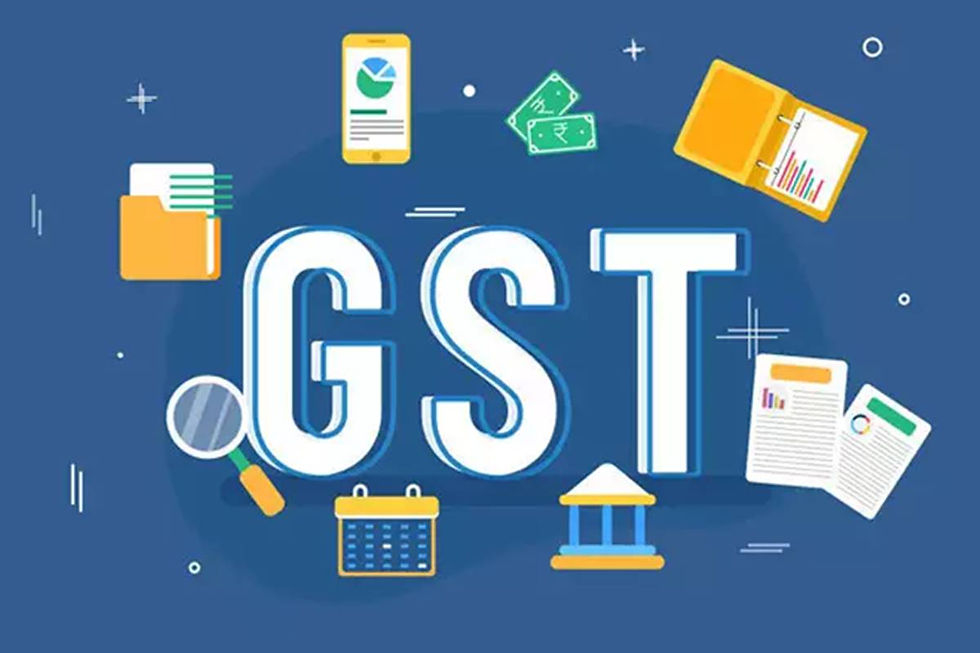5 Things You Need to Know About GST
- Sugandha Vohra

- Nov 3, 2016
- 3 min read
The Goods and Service tax, popularly known as GST, was ambitiously passed by the parliament in August 2016. There have been quite a lot of speculations about the GST bill .…

The Goods and Service tax, popularly known as GST, was ambitiously passed by the parliament in August 2016. There have been quite a lot of speculations about the GST bill and whether its passing was an economic decision or a political one. Never the less it will have certain inevitable economic impacts on the day to day business operations taking place throughout the country as and when it comes into effect.
A layman is automatically put off by the term “tax” even before he comes to any understanding of it. So it is essential to first comprehend how GST works before forming any notions about it.
1) What is GST?
GST or the Goods and Service Tax is a value added tax that will be levied on all goods and services at all points in the supply chain. Levy of GST shall repeal 17 indirect taxes currently existing in India on goods and services. The GST shall be concurrently levied by the center as CGST and states as SGST. Inter-state supplies would attract an integrated GST which would be an aggregate of SGST and CGST.
2) How does GST change the current tax structure?
The tax structure currently prevailing in our country has a cascading effect. The tax burden passes on from one person to another in the production and selling chain, increasing at every point. This means that at every step, tax has to be paid on the entire value of the good and not on the value added on the previous stage. This means that if hypothetic ally 10% tax is paid at every stage then for raw materials costing Rs.100, tax of Rs.10 is paid, then on the finished good worth Rs.150, tax of Rs.15 is paid.
With GST coming into picture, taxes are set off with one another at every stage and tax has to be paid for value added and not the entire value of the product or service. So in a similar scenario as stated above, tax of only Rs.5 would be paid on the finished good (10% of the value added- Rs.50).
3) What impact will GST have on business operations?
GST will by large ease business operations by disintegrating the complex tax structure. Furthermore, different sectors of the economy will benefit or torment from GST differently.
GST will subsume a no. of taxes resulting in avoidance of duplication of costs. It will also harmonize taxes levied by the state and the center individually, thus reducing cost of carrying out business.
Sectors like e-commerce, FMCG, cement etc. will benefit from drop in logistics cost and decrease in cost of distribution across states.
Media sector will benefit with high entertainment tax being replaced by GST. Mobile handsets and automobiles are also likely to face a fall in tax costs.
4) How will the economy benefit from GST?
Economy will automatically benefit as GST is set to give a boost to the revenue. It will control tax evasion as people will now be willing to deal with only those businessmen who have already paid their share of taxes. The no. of goods that are exempted from taxation is also expected to decline according to GST guidelines.
GST will carry zero duty against exports and a genuine percentage on imports, which will promote and protect domestic market. GST will also reduce costs of logistics and ludicrous taxes levied earlier resulting in slashing of cost of production and promotion of “Make In India”. GDP is also expected to rise by 0.9%-1.7%
5) Is there a negative outlook?
It is predicted that the prices of service sector viz. airlines, telecom etc. will shoot up due to replacement of service tax by GST. Prices of real estate may also experience a short term rise. Agricultural products may encounter a short term inflation of 0.75%. The consumers and businessmen can only benefit from GST if it is introduced at a nominal rate.
However, in the long run, the bill is conjectured to benefit the entire country if implemented as envisioned.




Comments